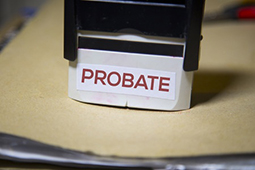
Idaho is one of the states that have adopted the Uniform Probate Code (UPC), which essentially governs inheritance/succession. Under this code, distribution of a deceased person’s estate to heirs is supervised by a court irrespective of whether the decedent left behind a will (testate) or not (intestate). Here is a look at Idaho’s probate and tax laws:
An Overview of Probate Law
The state of Idaho requires probate in the event a person dies and meets the following requirements:
• Wholly or partly owns real estate
• Has personal belongings (excluding property) worth $100,000 or more
This means probate is not required in cases where a deceased person does not satisfy the requirements listed above. With this in mind, probate in Idaho consists of four key elements including:
• A will executor
• The deceased person’s estate
• Creditors
• Estate distribution
Probate Process
To start with, the executor named in a deceased person’s will prepares and submits an application to the relevant probate court seeking authentication of the current will. If a person dies intestate, the court involved in this process will appoint an executor. In most cases, courts choose a surviving spouse or child as the estate executor although this is not mandatory. After this, the executor gathers all the necessary documents and prepares a thorough inventory of the decedent’s estate. Take note estate appraisal covers both assets and liabilities. If the decedent left behind unpaid debts, the estate executor is required to file a Notice to Creditors in local print media such as newspapers. The executor then settles outstanding debts from the decedent’s estate. It is worth noting that creditors cannot require the heirs of a deceased person to settle his/her debts. After paying debts, an executor distributes any remaining assets in accordance with the decedent’s will. In cases where there is no will, estate executors distribute assets in accordance with Idaho’s succession/inheritance laws. Finally, the executor prepares a final report detailing debt settlements as well as the distribution of assets to the decedent’s heirs. This report is usually submitted to the court supervising the probate process.
Q: Is probate required?
A: State law determines whether or not a particular estate is required to go through probate. Please consult an attorney at Brian Webb Legal for specific advice on your situation, but generally speaking, Idaho law requires an estate to go through the probate process when the decedent (1) owned assets or had money exceeding $100,000 in value at the time of his or her death, or (2) owned any real estate, no matter the value. If an estate contains less than $100,000 in value AND includes no real estate, it is not required to submit to the probate process.
Probate FAQ
Q: Can I keep my heirs from having to go through the probate process?
A: Yes, you can prevent your heirs from having to navigate the probate process by taking any of the following steps:
• you can form a trust;
• during your life you can give property to friends or family;
• any married couple can sign a devolution agreement;
• your real property can be set up with a joint tenancy or a life estate; and
• many bank accounts and some investments (stocks and bonds) can designate a “payable on death” beneficiary, which removes them from the probate process.
If you need a Boise area probate lawyer, please contact Brian Webb Legal at 208-331-9393 to schedule a consultation – we’re here to help. We also offer probate law consultation in Boise, Eagle, Nampa, Caldwell, Meridian, and surrounding areas.
